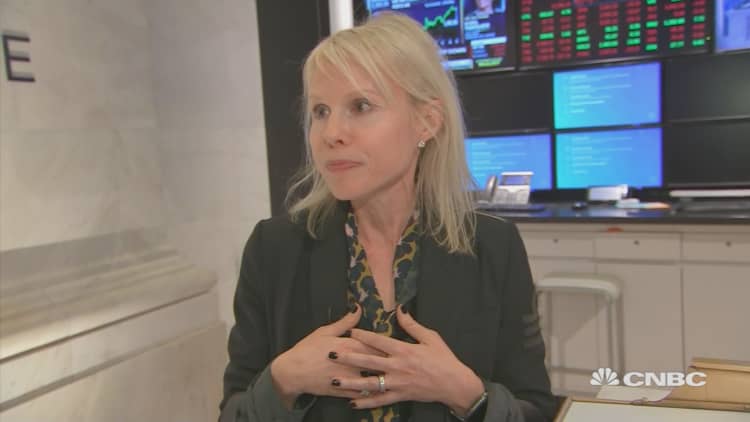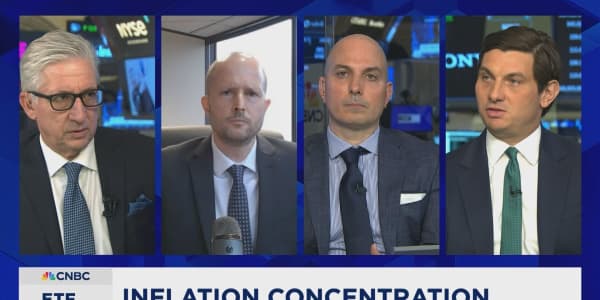
It's been a big year for ETFs and investment giant BlackRock is aiming to make next year even bigger for the industry.
BlackRock and NYSE owner ICE are looking to improve efficiency in the ETF market with their new ETF Hub as the industry continues to boom. The hub's key features, according to the ICE ETF Hub website, include processes to streamline ETF order entries, consolidate issuer data and provide the analytic tools needed while also facilitating fixed income ETF trading.
The latter has been a focus of BlackRock's Samara Cohen, co-head of iShares Markets and Investments at Blackrock, given the surge in bond ETF trading. In fact, over half of net ETF inflows have gone to bond ETFs in 2019.
"What's happening is, as lots of asset managers seek to meet the demand of investors to participate in bond ETFs, they're creating a bunch of, you can think of it as local access roads to create and redeem bond ETFs," she said Tuesday on CNBC's "ETF Edge."
"What the Hub is doing — and it's really a market utility that has never existed before — is creating a highway to facilitate the manufacturing process for bond ETFs," she added.
This is particularly relevant given that bond ETF trading, unlike for many ETF groups, has yet to be electronified, another goal Cohen has for the Hub.
"The demand for bond ETFs has really forced the electronification of the bond market because you can't trade a big portfolio, and some of these ETFs have thousands of bonds," she explained. "You can't trade that by voice or over the phone, so you need electronic systems and that has facilitated a huge change in the bond market, broadly."
Aside from the bond market, Cohen also points to the rising interest in ESG, short for Environmental, Social and Governance ETFs as another group that could drive the ETF industry.
"There's been a real desire by investors in the U.S., [and that interest] has been there longer in Europe, to combine their investing with their beliefs, and investors are becoming educated in what that means for them," she said.
Net inflows into U.S.-based ETFs have hit $271 billion this year, making 2019 the second-biggest year on record for the ETF market, according to ETF.com.




